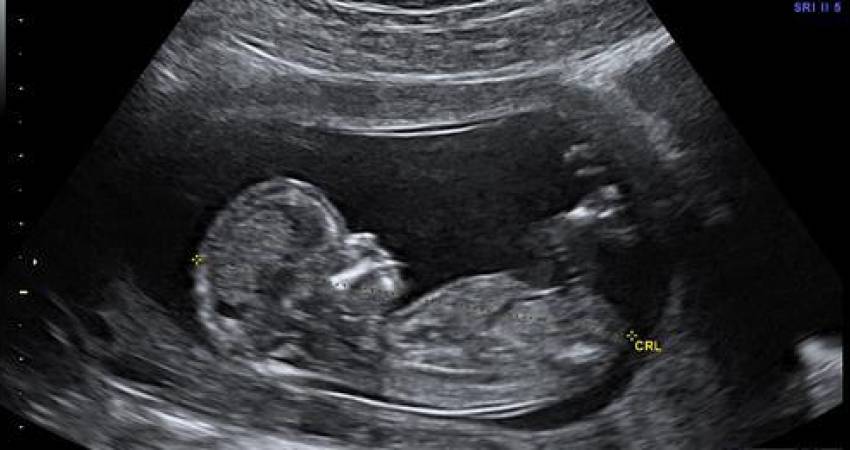
Spanish High Court approve abortion up to 14 weeks
The High Court in Spain has ruled in favour of abortion reform that will allow for abortion up until the 14th week of pregnancy, and does not require 16-year-old girls to have consent from a parent in order to obtain an abortion.
Previously, abortion was only accessible in Spain if the pregnancy was a result of rape, if the health of the mother was at risk, or if the baby was diagnosed with a disability.
But changes originally proposed in 2010 under José Luis Rodríguez Zapatero’s socialist government, sought to make abortion available until the 14th week of pregnancy, and would extend the limit up to 22 weeks, if the health of the mother or baby was at risk.
However, the reform was appealed before the constitutional court by the People's Party (PP).
Due to the magistrates of the court being divided between conservatives and progressives, the appeal was untouched for 13 years. In January this year, changes to the court’s personnel gave the court a progressive majority, and thus the appeal was rejected in favour of upholding the abortion reform.
However, court members did not agree on a summary of the ruling provided by Enrique Arnaldo, which would ensure that women who were seeking an abortion would be provided with all information accessible. Last week, the court approved of a new summary, by Judge Inmaculada Montalbán, which fully supports the reform and claims that accessing abortion is a woman’s right.
In the original proposed reform, girls ages 16 and 17 required consent from their parents in order to obtain an abortion, however, a recent change to the reform removed this requirement, meaning girls as young as 16 can obtain an abortion without parental consent.
Political Party VOX, who have actively opposed moves to make abortion more accessible, proposed making it obligatory for women to received an ultrasound scan of the baby before obtaining an abortion within the Castilla y León region. Juan García-Gallardo, VOX vice-president of the region, said this proposal sought to “protect women more, accompany them more during a difficult process like pregnancy”. However, the proposal received backlash, and the Spanish health ministry called for the region to halt it's plan.
Leader of the PP, Alberto Núñez Feijóo, was recently urged by former senior PP figures to remain faithful to the party’s position on pro-life issues, particularly as the party have gradually stopped speaking out about the issue of abortion since making the appeal.
“I don’t consider abortion a fundamental right because it is not included in the [UN] Human Rights Declaration,” Mr Núñez Feijóo said in February. “It can be carried out but only strictly within the terms of the law.”
In February, 40 Days for Life in Spain spoke to CNA on the law change, calling the new law “a death sentence for Spain” and that “the institutions that look after the good of citizens have failed us.”
Nicolás Jouve de la Barreda, the president of the Association of Researchers and Professionals for Life also spoke to CNA saying “For a law to be just, it must be not only necessary — which does not explain the accelerated legislative fever in favor of abortion or euthanasia — but that it also be based on real scientific data and on values and principles of morality that legitimize it.”
“Considering abortion as a woman’s right constitutes a perversion. Denying the right to life of some to affirm the right of others to extinguish it is a grave attack on human dignity,” he concluded.
Spain is one of the 25 out of the 27 EU countries that provide abortions. The removal of parental consent for a 16-year-old to obtain an abortion will only mean that more young vulnerable women could be pushed into an abortion they do not want. Despite claims that abortion is a human right, there is no human right that can trump the human right to life, which begins from the moment life begins; at conception.
Featured
- Man jailed for 9 years for forced abortion
- Abortion coercion has arrived in Ireland – the NWC are silent
- Review of at-home abortions 'needed after coercion case'
- French Govt to remind 29-year-olds of biological clock
- Huge factor in decline in primary school numbers ignored
- Germany Denies Promoting Abortion Abroad—While Funding Pro-Abortion NGOs
- Govt don’t oppose Coppinger abortion bill at 1st stage
- March for Life: Vance, the White House, and a Divided Pro-Life Movement
- Paris’ Annual March for Life Puts Euthanasia in the Spotlight
- Britain’s seemingly limitless abortion rate
- The importance of the work carried out by Every Life Counts
- Puerto Rico officially recognizes unborn children as ‘natural persons’
- Assisted suicide laws stalled by “complex” legal issues
- Yes, that hideous celebration of 300 abortions is real
- White Crosses Memorial: Dungarvan once again pays its respects to our aborted babies
- Josiah: Abortion Survivor
- Rally for Life 2025
You can make a difference.
DONATE TODAY